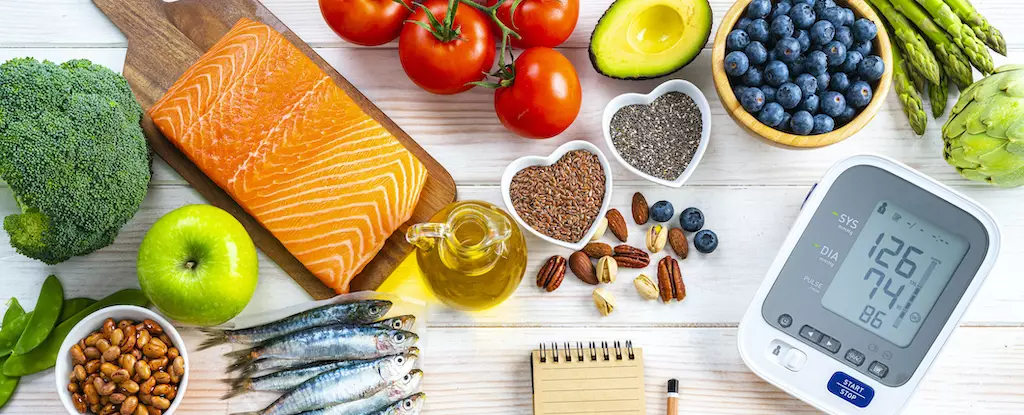When it comes to managing high cholesterol levels, many individuals wonder if supplements can provide an effective solution. While it is important to note that supplements alone cannot be relied upon to control cholesterol, there is evidence to suggest that certain supplements, when combined with a healthy diet, may have a positive impact. This article explores the role of supplements in cholesterol management, focusing on the types of cholesterol, the influence of diet, and the potential benefits of various supplements.
Understanding Cholesterol
Cholesterol can be categorized into two main types that directly affect the risk of heart disease and stroke. Low-density lipoprotein (LDL) cholesterol, also known as “bad” cholesterol, is responsible for carrying cholesterol from the liver to cells throughout the body. Elevated levels of LDL cholesterol can lead to the buildup of plaque in arteries, increasing the risk of heart disease and stroke. On the other hand, high-density lipoprotein (HDL) cholesterol, often referred to as “good” cholesterol, aids in removing excess cholesterol from the bloodstream and transporting it back to the liver for processing and excretion. Increased levels of HDL cholesterol are associated with a reduced risk of heart disease and stroke.
Diet plays a crucial role in reducing blood cholesterol levels, particularly LDL cholesterol. Making healthy dietary choices can significantly contribute to cholesterol control. Key recommendations include increasing the consumption of unsaturated fats, such as those found in olive oil and avocados, while minimizing the intake of saturated fats (e.g., animal fats) and trans fats (commonly found in certain processed foods). Additionally, incorporating soluble fiber into the diet has been found to effectively lower total and LDL cholesterol levels. Soluble fiber forms a gel-like substance in the gut, binding to cholesterol molecules and preventing their absorption into the bloodstream. Fruits, vegetables, oats, barley, beans, and lentils are excellent sources of soluble fiber, and there are also fiber supplements and food-based products available in the market to support cholesterol reduction.
1. Natural Soluble Fibers:
– Inulin (e.g., Benefiber)
– Psyllium (e.g., Metamucil)
– Beta-glucan (found in ground oats)
2. Synthetic Soluble Fibers:
– Polydextrose (e.g., STA-LITE)
– Wheat dextrin (also found in Benefiber)
– Methylcellulose (e.g., Citrucel)
3. Natural Insoluble Fiber:
– Flax seeds
These supplements are typically added to food or dissolved in water or drinks. Among them, psyllium has the strongest evidence supporting its use in improving cholesterol levels. Numerous high-quality randomized controlled trials have demonstrated that consuming approximately 10g of psyllium per day (equivalent to 1 tablespoon), alongside a healthy diet, can lead to a significant reduction in total cholesterol levels by 4 percent and LDL cholesterol levels by 7 percent.
In addition to fiber-based supplements, probiotics have shown promise in cholesterol reduction. Probiotics can assist in lowering cholesterol through various mechanisms, including facilitating cholesterol incorporation into cells and modifying the gut microbiome to promote the elimination of cholesterol through feces. A meta-analysis of 32 studies revealed that probiotic consumption led to a 13 percent reduction in total cholesterol levels. Probiotics containing Lactobacillus acidophilus and Bifidobacterium lactis, available in capsules or powders, appear to be particularly effective. However, it is crucial to consider individual variations, adherence to daily intake, overall health, and dietary habits when exploring the potential benefits of probiotics.
Other Considerations
While fiber and probiotic supplements hold promise in cholesterol management, it is essential to consult with a GP and dietitian before incorporating any supplements into your routine. It is crucial to remember that dietary changes, regardless of the inclusion of supplements, may not be sufficient to achieve optimal cholesterol levels. Lifestyle factors such as quitting smoking, stress reduction, regular exercise, and adequate sleep also play significant roles in cholesterol management. Furthermore, genetics can influence cholesterol levels, and in some cases, cholesterol-lowering medications like statins may be recommended even with dietary modifications and supplement usage. It is important to maintain an ongoing dialogue with your healthcare provider and carefully consider all available options during your six-month review.
Supplements can complement a healthy diet in the management of high cholesterol levels. While they should not be solely relied upon, certain supplements, such as soluble fiber-based products and probiotics, have demonstrated potential benefits in reducing total and LDL cholesterol levels. However, individual responses may vary, and it is crucial to seek guidance from healthcare professionals when considering the use of supplements. By combining dietary changes, healthy lifestyle habits, and informed decision-making, individuals can take proactive steps towards maintaining optimal cholesterol levels and promoting cardiovascular health.


Leave a Reply